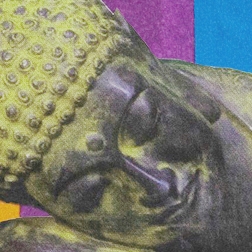The relaxation response is a state of deep rest that changes our body’s responses to stressful situations, both internal and external. It is as much an inborn mechanism as the stress response, and it is vital for reducing the negative effects of physical, emotional, and psychological wear-and-tear on our bodies. The Benson-Henry Institute for Mind Body Medicine at Massachusetts General Hospital — a world leader in the study, advancement, and clinical practice of mind body medicine — outlines the changes the relaxation response elicits: your metabolism decreases, heart beats slower, breathing becomes less shallow, muscles unwind, and blood pressure decreases.
Massage, meditation, yoga, deep breathing exercises, tai chi, progressive muscle relaxation, and visualization all have research to support their ability to call forth the relaxation response. Choose a practice that resonates with you, that fits within your lifestyle, and that you will be able to do regularly. Doing it daily is optimal because it will create the most powerful and enduring changes. When learning the basics of a technique, set aside 5 or 10 minutes a day to start. Many people find it easier to stick with a practice when it is scheduled first thing in the morning, while others like to end their day using relaxation to unwind before going to sleep.
If you prefer to have some hands-on help to promote the relaxation response, schedule a massage at Massage Therapy Center Palo Alto, and let yourself be nurtured by skillful, soothing hands. While it may be harder to take time out for relaxation when you’re very busy and stressed, it is exactly the time you need it the most!
